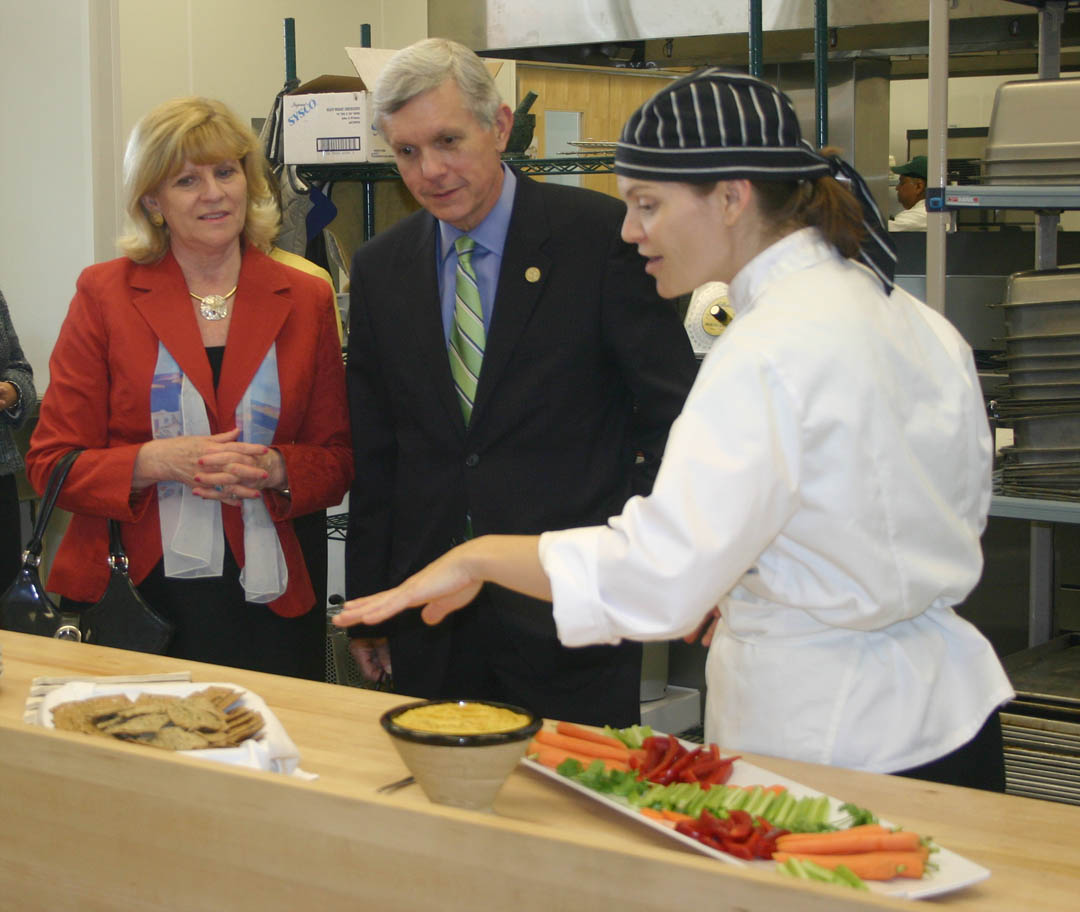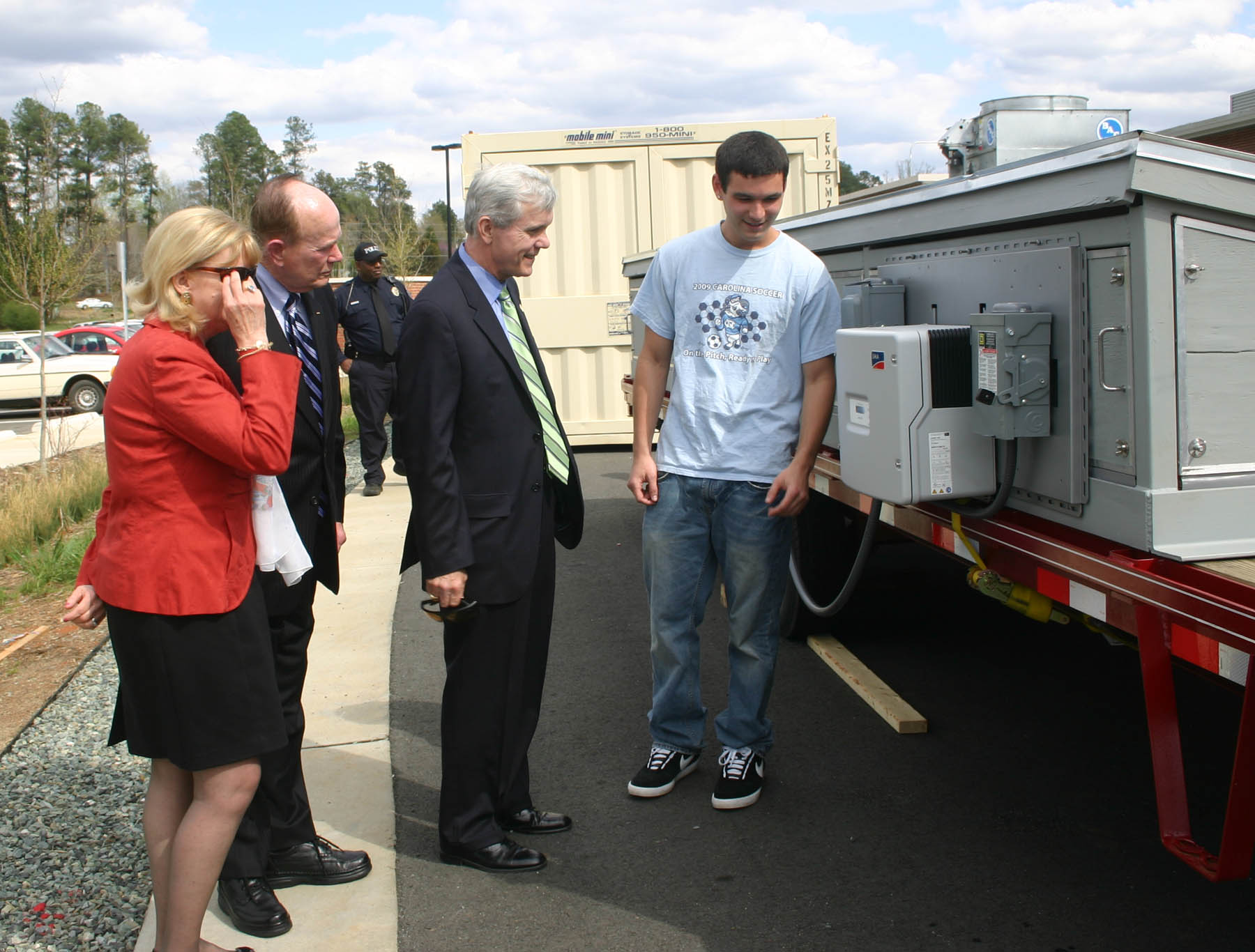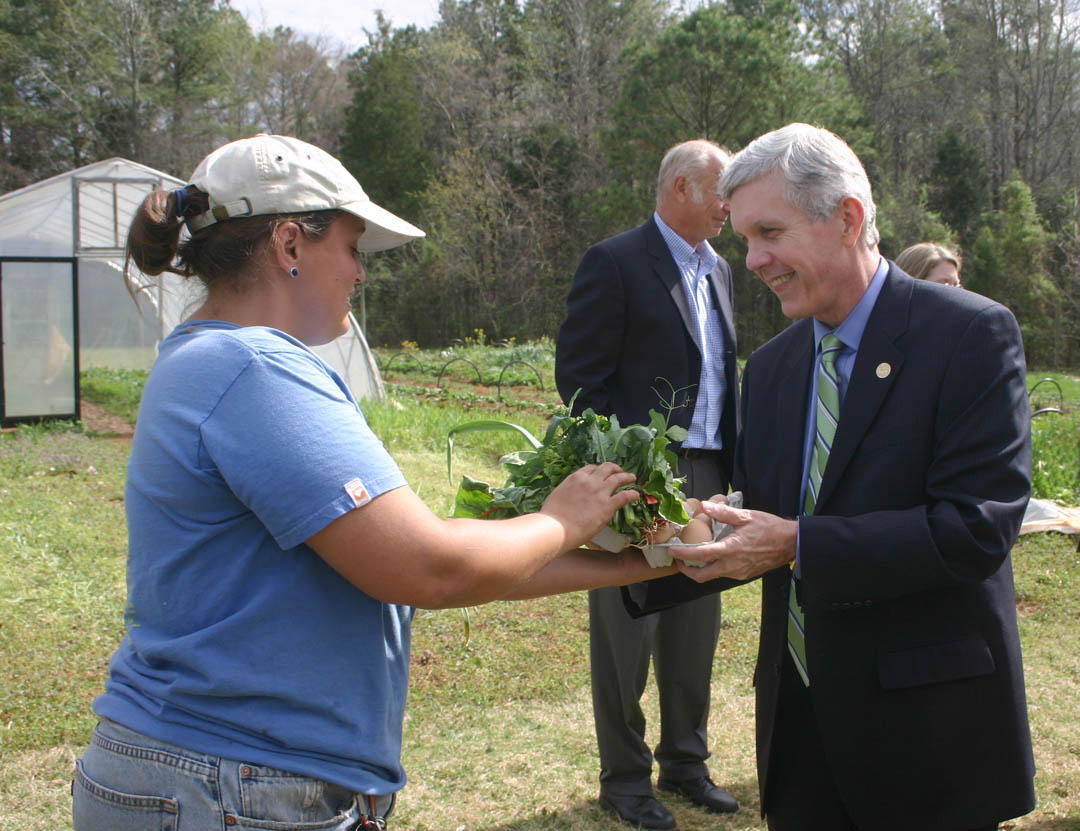PITTSBORO — North Carolina Lt. Gov. Walter Dalton toured the sustainability programs at Central Carolina Community College’s Chatham County Campus March 24 and liked what he saw.
“What I’ve seen here is phenomenal,” Dalton said following the tour. “We knew this campus was a leader in sustainability. What we’ll see in the future economy, we’re seeing on this campus today in a very real way.”
Dalton, a member of the State Board of Community Colleges, is a longtime leader in education and economic development. He came to see, first-hand, what CCCC offers for the state’s growing, sustainability-based green economy.
The college has been nicknamed “Green Central” for its commitment to promoting energy efficiency, good environmental stewardship, and consumer health, as well as preparing the workforce for the green economy.
Dalton saw the new Chatham Community Library and the Sustainable Technologies Center, both designed to be energy efficient and meet the high Leadership in Energy and Environmental Design (LEED) standards of the U.S. Green Building Council.
Located on the college campus, the library is a joint-use facility by the community and college. Both buildings were funded by Chatham County as part of its commitment to the environment as well as to expansion of educational opportunities for its residents.
Dalton said he liked the concept of joint-use, as well as the sustainable features of the buildings, such as wastewater recycling and the use of passive sunlight to light the interiors.
The lieutenant governor also visited some of the campus’ sustainable programs: the Natural Chef culinary arts program kitchen, biofuels classroom and laboratory, green building laboratory, and sustainable agriculture student farm.
He heard how the agriculture students, among other crops, grow oil seed plants. The seeds are sent to the college’s biofuels program, where the oil is extracted and sent to the culinary arts program for use in food preparation.
When that program has used it, the waste oil is sent back to the biofuels program for cleanup and conversion into a biofuel. It then goes back to the student farm to power the farm’s tractor and tiller.
“It’s a pretty amazing process,” said CCCC’s Andrew McMahan, who is now serving as the North Carolina Energy CIP director. “It’s all student-driven and it ties our sustainability programs together.”
Dalton was impressed, citing the efficiency and cost effectiveness of linking the programs in a way that benefits the environment.
The lieutenant governor also saw North Carolina State University’s N.C. Solar Center’s mobile photovoltaic trainer at the campus. It had been used for a March 22 joint Center-community college session providing training for students in the sustainable technology program.
The trainer was also part of the campus’s March 23 Day of Solar Activities, an opportunity to educate the public on solar power. At the event, the college also announced its new agreement with FLS Energy to place solar panels on the roofs of two of the buildings at the Chatham Campus at no cost to the college. This win-win agreement will provide FSL with electricity for resale and bring lease payments to the college, with the option of purchasing the units at a later date.
“Central Carolina Community College is committed to being a leader in sustainability education and preparing the workforce for the green economy,” said college President Bud Marchant. “We are very pleased to have had the opportunity to show Lt. Gov. Dalton what we are doing that benefits our students, our area, the state and the economy.”
Dalton said that he plans to visit all 58 of the state’s community colleges because he believes in what they are doing.
“I particularly believe in what this campus is doing — we can all learn from what it is doing in sustainability,” he said.
Also on the tour were elected officials N.C. Sen. Bob Atwater and Pittsboro Mayor Randy Voller; college trustee and former Chatham County Commissioner George Lucier; N.C. Solar Center Director of Education Pam Carpenter; CCCC President Bud Marchant; college administrators; and sustainability faculty.




